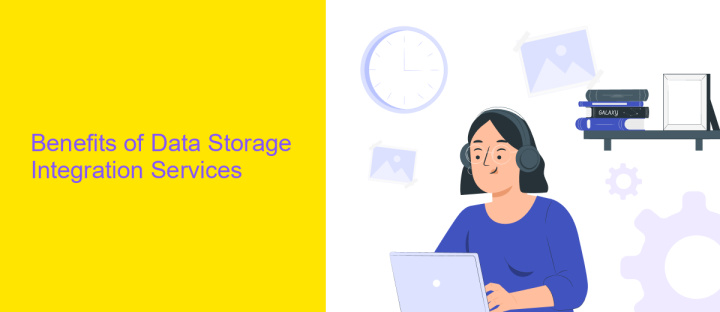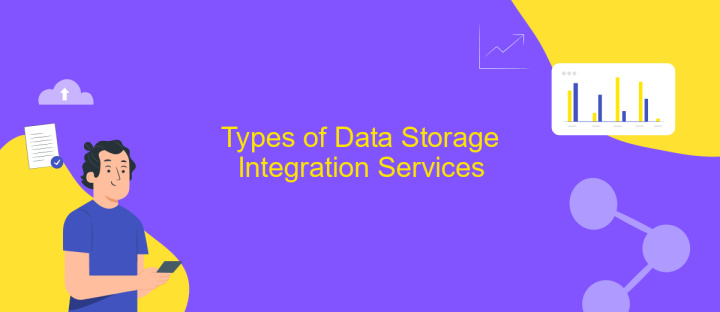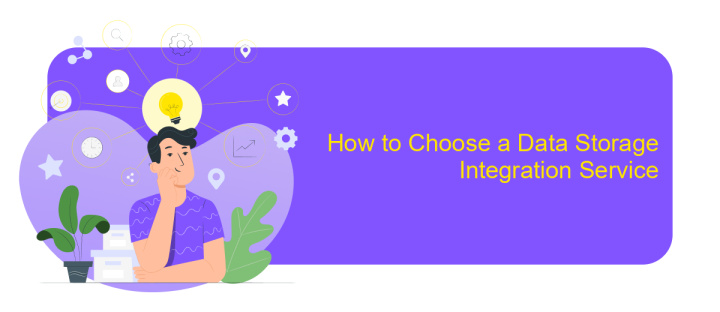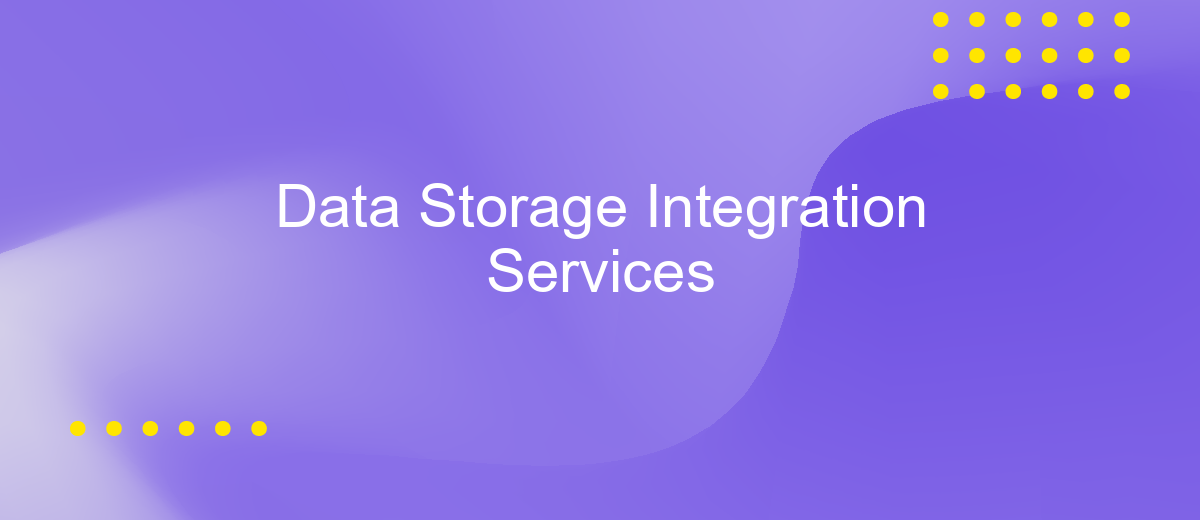Data Storage Integration Services
In today's rapidly evolving digital landscape, efficient data storage and seamless integration are crucial for businesses to thrive. Data Storage Integration Services offer comprehensive solutions to manage, store, and synchronize data across multiple platforms, ensuring accessibility, security, and scalability. This article explores the benefits, key features, and best practices of implementing Data Storage Integration Services in modern enterprises.
Introduction
Data Storage Integration Services play a crucial role in today's data-driven world, where businesses rely on seamless data flow and accessibility. These services enable organizations to efficiently manage, integrate, and synchronize data across various platforms and systems, ensuring data consistency and integrity. By leveraging advanced integration techniques, companies can enhance decision-making processes, improve operational efficiency, and gain a competitive edge.
- Streamlined data management across multiple platforms
- Enhanced data consistency and integrity
- Improved decision-making through real-time data access
- Increased operational efficiency
- Competitive advantage through optimized data utilization
Implementing Data Storage Integration Services requires a strategic approach, considering factors such as data volume, system compatibility, and security measures. By adopting these services, businesses can overcome data silos, ensure seamless data flow, and harness the full potential of their data assets. This ultimately leads to more informed decisions, better customer experiences, and sustainable growth.
Benefits of Data Storage Integration Services

Data Storage Integration Services offer numerous benefits by enabling seamless data flow between different systems and platforms. By integrating various data storage solutions, businesses can ensure real-time data synchronization, which enhances data accuracy and consistency. This leads to improved decision-making as stakeholders have access to up-to-date and reliable information. Furthermore, integration services help in reducing data silos, thereby fostering a more collaborative environment where data is easily accessible across departments.
Another significant advantage is the automation of data management tasks, which saves time and reduces the risk of human error. Services like ApiX-Drive facilitate easy and efficient integration of various applications and data sources without the need for extensive coding knowledge. This allows businesses to quickly adapt to changing data needs and scale their operations more effectively. Additionally, integrated data storage solutions can enhance data security by implementing uniform security protocols across all integrated systems, ensuring that sensitive information is protected from unauthorized access.
Types of Data Storage Integration Services

Data storage integration services are essential for businesses looking to efficiently manage and utilize their data across multiple platforms. These services ensure seamless data flow, consistency, and accessibility, enabling organizations to make informed decisions and streamline operations. There are various types of data storage integration services, each catering to different needs and requirements.
- ETL (Extract, Transform, Load): This type involves extracting data from various sources, transforming it into a suitable format, and loading it into a data warehouse or other storage systems.
- Data Virtualization: This service allows users to access and manipulate data from different sources without physically moving it, providing a unified view of the data.
- Data Replication: This method involves copying data from one storage system to another, ensuring data availability and redundancy.
- Data Federation: This approach integrates data from disparate sources into a single, cohesive view without consolidating the data into a single repository.
- Cloud Data Integration: This service focuses on integrating data stored in cloud environments, facilitating seamless data flow between on-premises and cloud-based systems.
Choosing the right type of data storage integration service depends on the specific needs and goals of the organization. Each type offers unique advantages, and understanding them can help businesses optimize their data management strategies, improve data quality, and enhance overall operational efficiency.
How to Choose a Data Storage Integration Service

Choosing the right data storage integration service is crucial for ensuring seamless data flow and maintaining data integrity across your organization. To make an informed decision, it's essential to evaluate your specific needs and the features offered by different providers.
Start by assessing the volume and type of data you need to integrate. Consider the compatibility of the service with your existing systems and whether it supports real-time data processing. Security measures and compliance with industry standards should also be top priorities.
- Scalability: Can the service grow with your data needs?
- Reliability: Does it offer high uptime and robust data backup options?
- Cost: Are the pricing plans flexible and within your budget?
- Support: Is customer support responsive and knowledgeable?
- Integration: Does it seamlessly integrate with your current tools and platforms?
By carefully considering these factors, you can select a data storage integration service that not only meets your current requirements but also adapts to future challenges. A well-chosen service will enhance data accessibility, streamline operations, and contribute to overall business efficiency.
Conclusion
In conclusion, Data Storage Integration Services play a crucial role in modern data management by ensuring seamless connectivity between various data sources and storage solutions. These services enable organizations to efficiently manage, analyze, and utilize their data across different platforms, thereby enhancing operational efficiency and decision-making processes. The ability to integrate diverse data sources into a unified system is essential for businesses to stay competitive and agile in today’s data-driven environment.
One of the notable tools in this domain is ApiX-Drive, which simplifies the integration process by offering a user-friendly interface and robust automation capabilities. ApiX-Drive allows businesses to connect various applications and data storage services without the need for extensive coding or technical expertise. By leveraging such integration services, organizations can streamline their workflows, reduce manual intervention, and ensure data consistency across all platforms. Ultimately, the adoption of efficient Data Storage Integration Services is pivotal for harnessing the full potential of organizational data.
FAQ
What is Data Storage Integration?
Why is Data Storage Integration important for businesses?
How can I automate Data Storage Integration?
What are the common challenges in Data Storage Integration?
Can I integrate data without extensive technical knowledge?
Routine tasks take a lot of time from employees? Do they burn out, do not have enough working day for the main duties and important things? Do you understand that the only way out of this situation in modern realities is automation? Try Apix-Drive for free and make sure that the online connector in 5 minutes of setting up integration will remove a significant part of the routine from your life and free up time for you and your employees.

